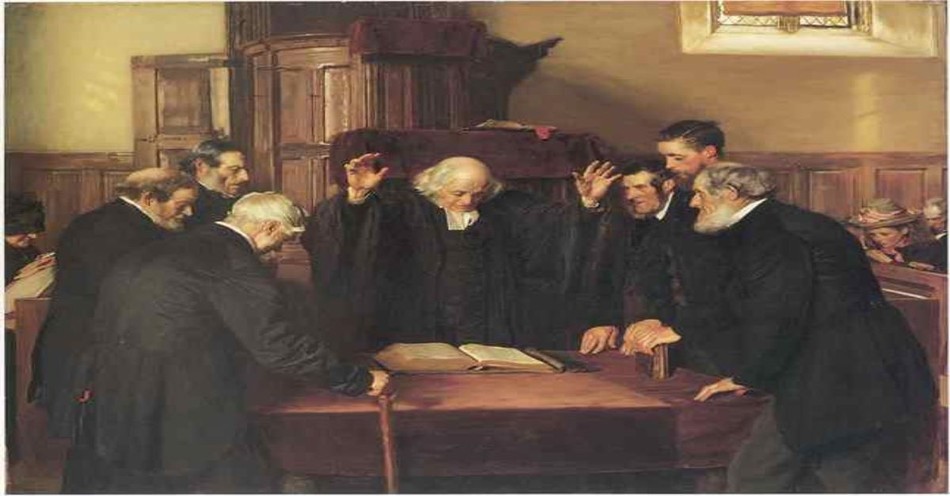The Church Elders of Jesus' Day
In the Judaism of Jesus’ day, the elders of Israel were still dominant. The most frequent use of the word “elder” in the New Testament refers to the Jewish elders who opposed Jesus during his lifetime. Within the gospels and Acts “elders” are most often viewed as forming a closely-knit group with the “chief priests.” Again and again, we read of “the chief priests and elders of the people” (Matthew 21:23; Matthew 26:3, Matthew 26:47; Matthew 27:1, etc.). The term elder was probably very broad and would include members of the scribes as well as the Pharisees and Sadducees (cf. “traditions of the elders” Matthew 15:2; Acts 22:6).
Therefore it is evident that the Judaism out of which the early church emerged was one in which elders played a distinctive and well-known leadership role. This familiar role in Jewish society was no doubt where the early church got the title “elder.” But just what the character and function of the early Christian elder was can only be determined by studying the New Testament texts. It would be wrong to assume that the Jewish concept was taken over with no modifications because the church is not simply a carbon copy of Judaism or of Old Testament Israel.
Prophets and Elders
It is worth noting in passing that the office of priest, so prominent in the Old Testament, is not taken over by the early church. Prophets and elders (cf. Ezekiel 7:26) have their counterparts in the church and these titles are used. But there is no official counterpart to the priest, for, as the New Testament teaches, the whole church is a “holy priesthood” (1 Peter 2:5), or a “royal priesthood (1 Peter 2:9). We who are in Christ have all “been made priests to his God” (Revelation 1:6). Each individual has access to the holy of holies, God’s throne of grace, because of the once-for-all atoning death of Christ. No officer in the church has the function of mediating between the believer and God.
Elder in the Old Testament
Among primitive peoples authority seems naturally to be invested in those who by virtue of greater age and, consequently, experience are best fitted to govern thus Iliad iii.149. Later the idea of age became merged in that of dignity. In like manner the word patres came to be used among the Romans. So also among the Germans authority was entrusted to those who were older; compare Tacitus Agricola. The same is true among the Arabians to the present day, the sheik being always a man of age as well as of authority.
The elders served as local magistrates, in bringing murderers to trial (Deuteronomy 19:12; 21:1; Joshua 20:4), punishing a disobedient son (Deuteronomy 21:19), inflicting penalty for slander (Deuteronomy 22:15), for noncompliance with the Levirate marriage law (Deuteronomy 25:7), enforcing the Law (Deuteronomy 27:1), conducting the service in expiation of unwitting violation of the Law (Leviticus 4:13).
Elder in the New Testament
(1) The word is used adjectivally to denote seniority (Luke 15:25; 1 Timothy 5:2).
(2) Referring to the Jewish elders of the synagogue, usually associated with the scribes and Pharisees, and New Testament passages cited in the previous article.
(3) It denotes certain persons appointed to hold office in the Christian church and to exercise spiritual oversight over the flock entrusted to them. From the references in Acts 14:23; 20:17 it may be inferred that the churches generally had elders appointed over them. That "elders" and "bishops" were in apostolic and sub-apostolic times the same, is now almost universally admitted; in all New Testament references, their functions are identical. The most probable explanation of the difference of names is that "elder" refers mainly to the person, and "bishop" to the office; the name "elder" emphasizes what he is, while "bishop," that is "overseer," emphasizes what the elder or presbyter does.
Excerpt taken from "Christian Elders in the New Testament" by John Piper. © Desiring God. Website: desiringGod.org (used by permission).



